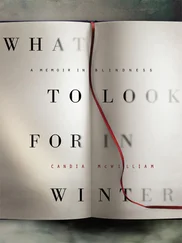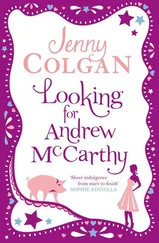Edeet Ravel - Look for Me
Здесь есть возможность читать онлайн «Edeet Ravel - Look for Me» весь текст электронной книги совершенно бесплатно (целиком полную версию без сокращений). В некоторых случаях можно слушать аудио, скачать через торрент в формате fb2 и присутствует краткое содержание. Жанр: Старинная литература, на английском языке. Описание произведения, (предисловие) а так же отзывы посетителей доступны на портале библиотеки ЛибКат.
- Название:Look for Me
- Автор:
- Жанр:
- Год:неизвестен
- ISBN:нет данных
- Рейтинг книги:5 / 5. Голосов: 1
-
Избранное:Добавить в избранное
- Отзывы:
-
Ваша оценка:
- 100
- 1
- 2
- 3
- 4
- 5
Look for Me: краткое содержание, описание и аннотация
Предлагаем к чтению аннотацию, описание, краткое содержание или предисловие (зависит от того, что написал сам автор книги «Look for Me»). Если вы не нашли необходимую информацию о книге — напишите в комментариях, мы постараемся отыскать её.
Look for Me — читать онлайн бесплатно полную книгу (весь текст) целиком
Ниже представлен текст книги, разбитый по страницам. Система сохранения места последней прочитанной страницы, позволяет с удобством читать онлайн бесплатно книгу «Look for Me», без необходимости каждый раз заново искать на чём Вы остановились. Поставьте закладку, и сможете в любой момент перейти на страницу, на которой закончили чтение.
Интервал:
Закладка:
When I brought out my camera, the atmosphere in the room became very serious and intent. The bereaved parents stared hard into the camera lens, as if they were pinning their last hopes on these photographs, as if they believed or prayed that maybe, possibly, when people saw the images and knew the story something would be done. I felt guilty and heartbroken.

saw the images and knew the story something would be done. I felt guilty and heartbroken.
Then we watched a video of the children being shot—someone who’d been sit ing on a balcony had caught it with a camcorder as he lmed the tanks crawling through the streets. The kil ing was very distant and smal on-screen. Now the children would live forever as video images, their death would be seen again and again, the tiny distant bodies crumpling on the white street. The two boys, Ashraf and Jamil, had misunderstood; they thought the curfew was lifted; that’s what their father had told them. He was the one who had misunderstood, he said. The blaring sound of the megaphone, the bad accents of the soldiers—he had misheard. And they were so excited about going out, they ran onto the street, clutching the two coins their father had given them for chocolate. The coins were stil in the st of one of the boys when his body was retrieved.
I stood near the wal and thought about Ra and wondered what he would do in this room and what he would say to the parents. He would be able to speak to them in Arabic. The mother was crying, and she had to leave the room when the video came on, but the father was quiet.
We left the vil age in a gloomy mood. The soldiers watched us with the same blank looks. We avoided their eyes.
In the van driving home, one of the men, who was religious, read us a psalm from a pocket Bible. He had sandy hair, gray eyes, and a sensuous, trusting face. “The Lord looks down from heaven, he sees al the sons of men. A king is not saved by his great army, a warrior is not delivered by his great strength.” The sound of the words was soothing, but no one was comforted by the words themselves, not even the man who read them.
When I came home I cal ed Rafi. He said he’d come over after Naomi was in bed, later in the evening.
I went for a walk on the beach, but for once even the sea failed to seduce me. A barrier of images blocked my escape: the house ful of relatives, the man with the cat eyes and his teenage wife, the folding chairs, the intense faces staring into the camera, the mother running out of the room. The two smal bodies crumpling on the street.
A woman in a black-and-ruby swimsuit was sit ing on a rented beach chair reading the newspaper. The tanned, blond man who col ected payment for the chairs passed her and asked, “So did they kil him in the end, or not?” There had been an assassination at empt in the morning, but it wasn’t clear yet whether the targeted man was dead or merely wounded.
“So did they kil him in the end, or not?”
The words had a hol ow, metal ic quality to them, like a corroded pipe in a deserted factory. “So did they kil him in the end, or not?” The question echoed in the air: smal talk between strangers. Maybe I was starting to go mad.
I was glad to nd Benny in my at when I returned; I wanted some company. Benny looked a lit le more spruced up than usual. He was wearing a clean blue shirt and a pair of trousers instead of his usual denim shorts.
“Going out?” I asked him.
“Yes, to visit you,” he said. “Where have you been al day, Dana? I need to talk to you. I brought some wine and stu .” I saw that he’d set a bot le of wine on the kitchen counter along with al sorts of snacks: cheese borekas and salads from the bakery around the corner, and a poppy seed cake.
“What’s the occasion?” I asked.
“I have something I need to talk to you about. Where were you today, by the way?” He lit a cigaret e.
I wondered what was going on. Benny was a pragmatic person, and he liked things that were plain: plain food and plain songs and plain people. And if people weren’t plain, if they were only predictable, that was ne, because he mistook predictability for plainness and he didn’t notice complexity or else he pretended it wasn’t there. If he came across anything that required a lit le more e ort on his part, some insight or a departure from his usual way of thinking, he looked the other way. At the same time he was a very restless person, and I sometimes felt he’d become a taxi driver because he couldn’t sit stil , and that he couldn’t sit stil because something was missing from his life and he was hoping to find it.
“I went to photograph a condolence visit, two Palestinian children who were kil ed by a tank.”
He sighed. “What about our victims, have you paid any condolence visits there?”
“We’ve had joint condolence visits … our families, their families.”
“You don’t care about our dead …”
“People are doing this so we’l al have fewer dead, hopeful y.” We’d had this conversation many times. We were constantly repeating ourselves, but neither of us minded. Every time we said the same things they seemed new, they were new. “You know how I feel about our dead, Benny.”
“Yes, yes … I just get fed up with you.”
“You’ve never even been to a refugee camp. Not even once in your life.”
“So what? I know what they’re like. It’s sad, but they have only themselves to blame. Besides, we have poverty too. They don’t have the monopoly on bad living conditions.”
“What have you been doing?”
“The usual. I had a fare al the way north today. Rich bastards. You wouldn’t believe the money some people in this country have, it boggles the mind. The whole time they were talking about their investments. The numbers they were throwing around … Wine?”
“Yes, please.”
“This is very good wine,” he said, opening the bot le and pouring. “Who painted this mural for you?”
“Someone Daniel worked with.”
“Some people have talent … Look at those cows.” He smiled. “Very cute.”
“Wel , what do you need to talk to me about?”
“I want to marry you.”
“Marry me! Benny, you know I’m married.”
“Marry me! Benny, you know I’m married.”
“I know we can’t marry technical y, though I think there’s a possibility you’d qualify for divorce based on desertion—I don’t know what the rules are. I asked around, but no one seems to know. But even if we can’t marry technical y, we can live as if we’re married. And we can have children.”
“I don’t know what to say.” I was sorry for Benny, but at the same time I was a lit le suspicious of his motives. I thought he might be trying to get back at Miriam; maybe he wanted to even things out so he wouldn’t be so tormented by her new relationship.
“I love you, Dana. I can’t stop thinking about you. I come into this at while you’re away, I look at everything, and I feel I’m losing my mind. I watch you while you’re sleeping, I’ve even stroked your hair, I know it’s wrong but I couldn’t help myself. I feel I’l explode if I can’t have you. There are a mil ion obstacles, and I keep tel ing myself over and over that it’s impossible. First, your politics. My family would just go through the roof if they found out. And knowing you, they’d nd out in the rst ve minutes of meeting you, you’re not the type to keep that sort of thing to yourself. But on the other hand, I’m over forty, I no longer have to listen to my parents. I’m a big boy, I can do what I want. They’d get used to it, and if they didn’t, tough. Then there’s the problem of children. If I can’t marry you, they’d be il egitimate. That would be real y hard in this country. But we could look into it, we could see whether there’s a way for you to get a divorce. I think you qualify, someone told me that after a certain amount of time if the husband is missing you qualify, I’m not sure. I don’t have a lot of money, this divorce and the war have destroyed me. So there are lots of problems, but on the other hand, I’m just going insane. If you say no, I don’t know what I’l do. I feel you like me, but I don’t know. Everything depends on you, of course. But maybe even if you don’t feel you’re ready to decide, you could give me a chance. Get to know me, give me a chance to prove myself.”
Читать дальшеИнтервал:
Закладка:
Похожие книги на «Look for Me»
Представляем Вашему вниманию похожие книги на «Look for Me» списком для выбора. Мы отобрали схожую по названию и смыслу литературу в надежде предоставить читателям больше вариантов отыскать новые, интересные, ещё непрочитанные произведения.
Обсуждение, отзывы о книге «Look for Me» и просто собственные мнения читателей. Оставьте ваши комментарии, напишите, что Вы думаете о произведении, его смысле или главных героях. Укажите что конкретно понравилось, а что нет, и почему Вы так считаете.












